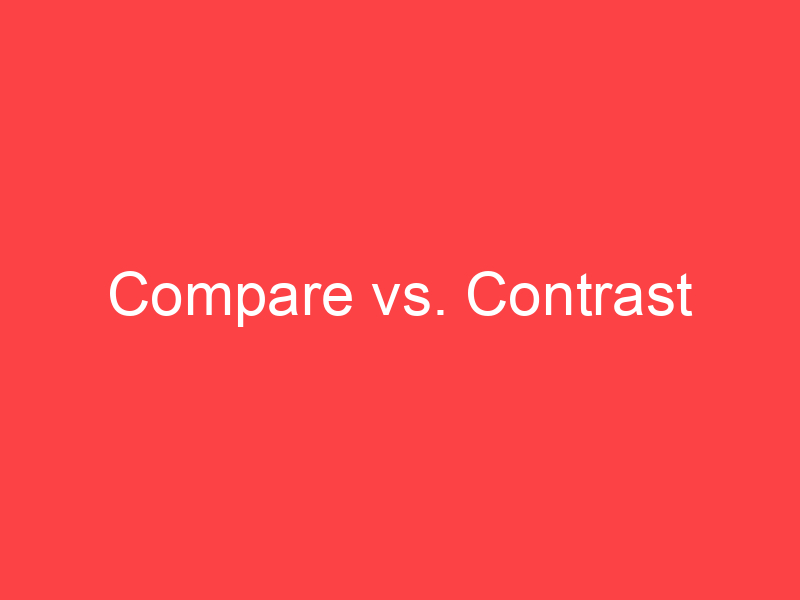-
Compare (verb)
To assess the similarities and differences between two or more things [“to compare X with Y”]. Having made the comparison of X with Y, one might have found it similar to Y or different from Y.
“Compare the tiger’s coloration with that of the zebra.”
“You can’t compare my problems and yours.”
-
Compare (verb)
To declare two things to be similar in some respect [“to compare X to Y”].
“Astronomers have compared comets to dirty snowballs.”
-
Compare (verb)
To form the three degrees of comparison of (an adjective).
“We compare “good” as “good”, “better”, “best”.”
-
Compare (verb)
To be similar (often used in the negative).
“A sapling and a fully-grown oak tree do not compare.”
-
Compare (verb)
To get; to obtain.
-
Compare (noun)
comparison
-
Compare (noun)
illustration by comparison; simile
-
Contrast (noun)
A difference in lightness, brightness and/or hue between two colours that makes them more or less distinguishable.
-
Contrast (noun)
The degree of this difference.
“The red and the orange don’t have much contrast between them — I can hardly tell them apart.”
-
Contrast (noun)
A difference between two objects, people or concepts.
“Israel is a country of many contrasts.”
-
Contrast (noun)
Antithesis.
-
Contrast (verb)
To set in opposition in order to show the difference or differences between.
-
Contrast (verb)
To form a contrast.
“Foreground and background strongly contrast.”

